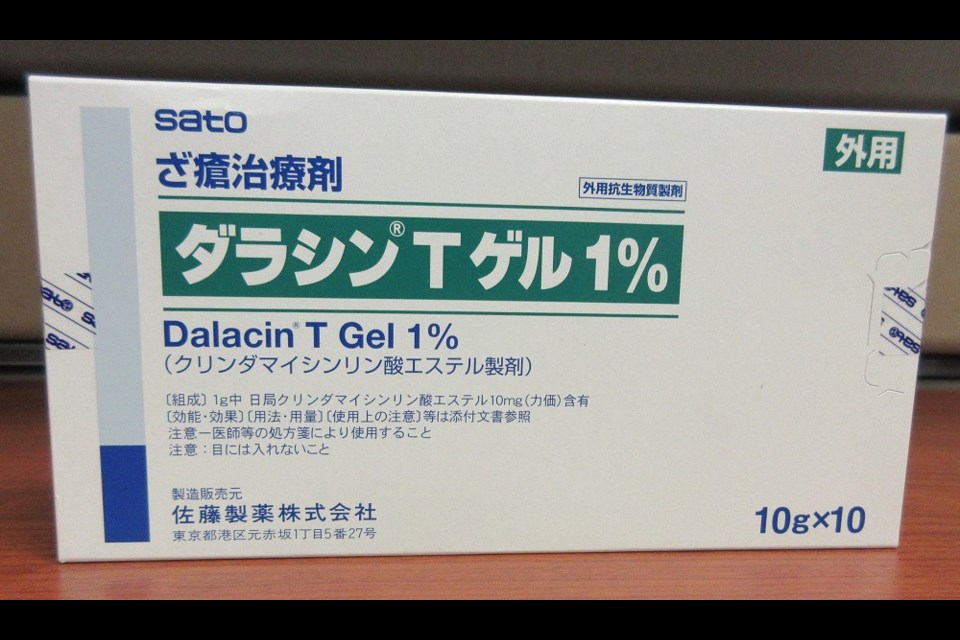Health Canada is warning consumers that several unauthorized products seized from a Richmond-based beauty and health store may pose “serious health risks.”
The eye drops, an eye wash and an acne gel seized from Tokyo Beauty & Health Care at 8191 Westminster Highway, near No. 3 Road, contain prescription drugs, according to the federal health authority’s advisory issued Wednesday.
“Prescription drugs should be taken only under the advice and supervision of a health care professional because of the risk of interactions with other medications and side effects,” reads Health Canada’s warning.
“Prescription drugs can only be legally sold via a prescription.”
According to the product labels, the acne gel, three types of eye wash and six types of eye drops, contain one or more prescription drugs, including clindamycin, aminocaproic acid and neostigmine methylsulfate.
Some of the products are also packaged and labelled in Japanese.
“As a result, information about ingredients, usage, dosage and side effects may not be understood by all consumers,” the warning read.
This isn’t the first time Tokyo Beauty & Health Care has had its products seized by Health Canada. In 2019, the federal agency seized an unauthorized eye wash, which also contained aminocaproic acid.
Affected products
|
What are the risks?
According to Health Canada, clindamycin is a prescription antibiotic used to treat bacterial infections, including those associated with acne and should not be used by people with a history of ulcerative colitis (inflamed bowel) or a history of inflamed bowel linked with antibiotic use (antibiotic-associated colitis).
Side effects of clindamycin could include dry or scaly skin, peeling skin, a stinging or burning feeling on the skin, eye pain, itching, hives, redness and gastrointestinal symptoms such as indigestion and gas.
Aminocaproic acid is a prescription ingredient used to decrease bleeding in various clinical situations. If an eye is exposed to aminocaproic acid, it may affect the eye itself and be absorbed through the tear ducts into the blood.
Side effects of aminocaproic acid include watery eyes, vision changes, headache, dizziness, nausea, muscle weakness and skin rash.
Meanwhile, Health Canada said that, currently, there are no approved eye drops on the Canadian market that contain neostigmine methylsulfate.
In the past, similar drugs were used to treat glaucoma but are “no longer widely used because of the significant number of potential eye-related side effects.”
These side effects include blurred distance vision, frontal headaches, twitching lids, red eyes, cataracts, allergic reactions, iris cysts, retinal detachment and the potential for causing a specific type of glaucoma attack. In addition, if the drug is absorbed into the nose via the tear duct, it may cause serious cardiac and respiratory side effects.
What you should do
Anyone who has these products should stop using them and consult their doctor if they’ve used the products and have health concerns.
Check product labels. According to Health Canada, authorized health products have an eight-digit Drug Identification Number (DIN), Natural Product Number (NPN) or Homeopathic Drug Number (DIN-HM). You can also check if a product is authorized by searching Health Canada’s drug product database and licensed natural health product database.



